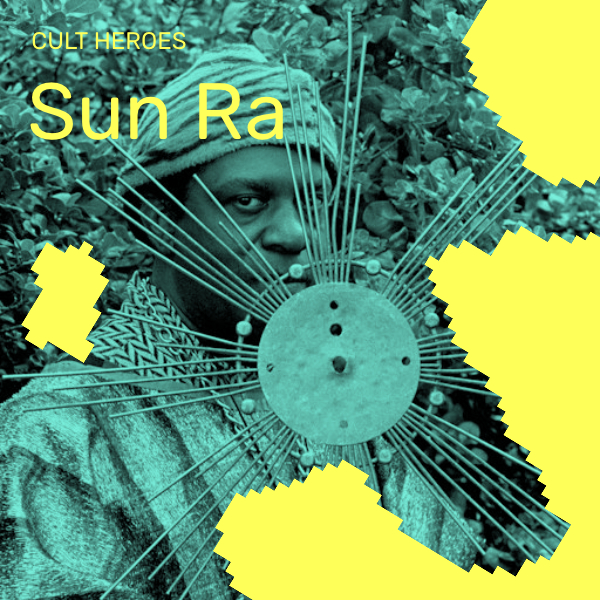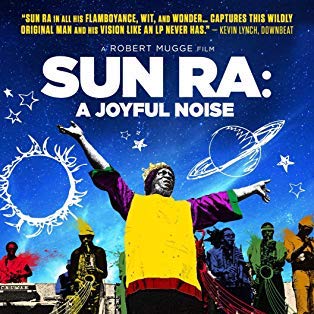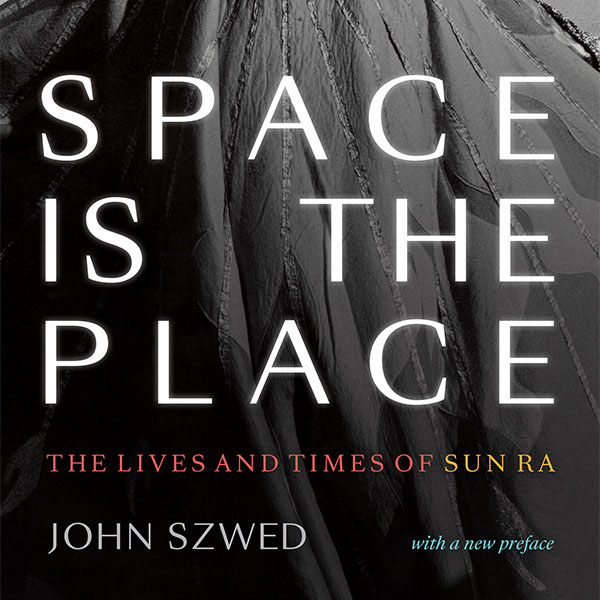Over the last few years, Sun Ra has become the object of a growing obsession. Long untraceable, due to a very limited number of copies of his music available, his records have since been largely reissued and made available around the world. From the hundreds of albums he recorded – he became one of the most prolific of jazzmen – many were released on his own label, El Saturn. The cosmic jazz prophet has inspired several generations of artists.
“Love in its splendor / Speaks to me in metaphysical harmonies.” These lyrics from “Love In Outer Space” summarize the mission that Sun Ra intends to give to his work, namely to shape the connection between an alien being from Saturn and the life-saving role of music on Earth. Academically, it’s reminiscent of Plato’s metaphysics that positioned order and harmony in the sky and disorder on Earth. In A Joyful Noise, a documentary film of the artist, in response to the question “What do you think of the people of Planet Earth? Why do they look sad?”, the pianist and composer replied, “They are sad because they have no music”. Let us add that the foundations to his universe were the consequences of racial segregation that raged through the United States at the time. In response to the social issues, in as early as the ’50s, Sun Ra saw in escapism the solution to oppression. If harmony was not on Earth, it had to be elsewhere, on Saturn, where he had claimed to have come from. He thus became, without knowing it, one of the great champions of Afrofuturism for the coming century.
This universe, which gave rise to eccentric performances at concerts during which musicians wore handmade costumes, materialised in a proto-’free jazz music’, where the field of happy cacophonies often met the blues and the groove, and with harmonies that would always catch the listener’s attention. This is the case for “Rocket Number 9” who’s bumpy start then gives way to some classic jazz swing. But the most glaring example of his seductive oddity is undoubtedly “Enlightenment”. In his avant-gardism, Sun Ra, who managed business by himself, never neglected the pop or commercial potential in his music. In “Nuclear War” Sun Ra & His Arkestra engage in an enthusiastic game of call and response, creating an atmosphere much like the one found in many African-American churches. As this playlist aims at initiating the largest amount of people possible, as well as following my own personal taste, I ultimately favoured the strangely sweet songs like “Island in the Sun” and stripped down hypnotic tunes “Doors of the Cosmos” and the upbeat “Rocket Number 9” to his more adventurous songs.
A central part of the early avant-garde jazz movement in Chicago, Sun Ra has never stopped expanding its scope. All is said in “Space Is the Place”: “There’s no limit to the things that you can do / There’s no limit to the things that you can be.”






.jpg)

.jpg)